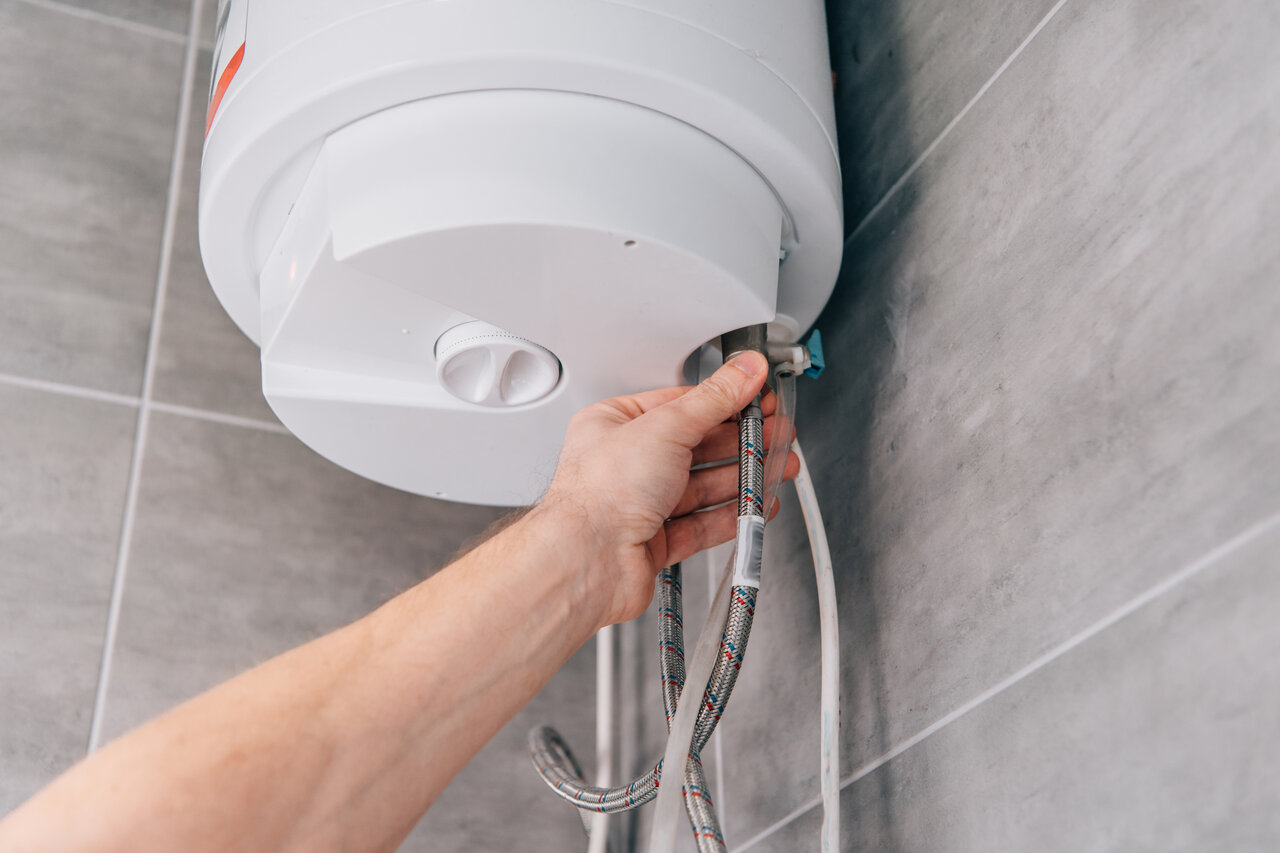Replacing a water heater in Phoenix is a crucial task that ensures you have a reliable supply of hot water for your household needs. When your water heater starts showing signs of age or inefficiency, it’s essential to address the issue promptly to avoid interruptions in your daily routine. Our professionals are here to help you navigate the replacement process with ease and confidence.
Determining the Need for Water Heater Replacement
Signs Your Water Heater Needs Replacement
Several signs indicate that your water heater may need replacement. One of the most common signs is inconsistent water temperature. If you notice that your water is not as hot as it used to be or fluctuates between hot and cold, it could indicate a failing heating element or a buildup of sediment. Leaks around the water heater are another warning. If you see water pooling around your unit, it might mean that the tank has a crack or has corroded, which usually requires replacement.
Strange noises, such as popping or rumbling, are also red flags. These sounds often result from sediment buildup in the tank, causing the water heater to overwork and eventually fail. If you detect these issues, it’s time to consider a replacement. Prompt attention can prevent further damage and ensure a consistent supply of hot water for your household.
Assessing the Age and Efficiency of Your Current System
The age of your water heater is crucial when determining the need for a replacement. Most water heaters last between 8 to 12 years. If your unit is within this age range or older, it might be time for a new one. Older water heaters are typically less efficient, resulting in higher energy bills. Besides age, consider the efficiency of your current system. An inefficient water heater can consume more energy, costing you more money in the long run.
Evaluate your utility bills and compare them to what you spent in previous years. A noticeable increase could signal that your water heater is no longer operating efficiently. Our professionals can help you assess the condition and efficiency of your current system. By analyzing these factors, we can recommend whether a replacement is the best course of action.
Choosing the Right Water Heater for Your Home
Types of Water Heaters Available
Several types of water heaters are available, each with its advantages and disadvantages. Traditional tank water heaters store and heat a large volume of water ready for use. These units are common but can take up significant space and may not be as energy-efficient. Tankless water heaters, on the other hand, heat water on demand. They are generally more energy-efficient and save space, but they can be more expensive upfront.
Another option is a heat pump water heater, which uses electricity to move heat from the air or ground to heat the water. These are highly efficient but may struggle to work effectively in colder climates. Finally, solar water heaters use energy from the sun, making them an eco-friendly option. Choosing the right type depends on your household’s needs, budget, and space availability.
Factors to Consider (Size, Fuel Type, Efficiency)
Several factors should influence your choice of a new water heater. Size is critical; you need a unit that can adequately supply hot water for your entire household. Consider the number of people in your home and your average hot water usage. A unit that is too small will struggle to meet demand, while one that is too large will waste energy.
Fuel type is another essential factor. Water heaters can run on electricity, natural gas, propane, or solar power. Each has its benefits and drawbacks. For instance, gas water heaters typically heat water faster than electric ones, but they require access to a gas line.
Efficiency is also key, as more efficient units tend to save money on energy bills over time. Look for the Energy Star label or consult our professionals to find the most efficient models. By considering these factors, you can choose the best water heater to meet your needs and ensure long-term performance and savings.
Preparing Your Home for Water Heater Replacement
Steps to Take Before the Technicians Arrive
Before our professionals arrive to replace your water heater, there are several steps you can take to prepare your home. First, clear the area around your existing water heater. Remove any items or clutter that may obstruct access to the unit. This includes clearing a pathway from the entrance to the installation site, which will make it easier for our technicians to transport the new water heater and remove the old one.
Next, ensure the installation site is easy to access. If it’s located in a basement, attic, or tight closet, make sure the area is well-lit and accessible. It’s also a good idea to inform everyone in the household of the scheduled replacement. This ensures that everyone is aware and can avoid the work area for safety reasons.
Ensuring a Safe and Accessible Work Area
Safety is paramount during any HVAC repair or installation process. Check for any potential hazards that may pose a risk to our technicians. This includes securing loose wires or cables, and ensuring that the floor is dry to prevent slips and falls. If pets are present, keep them confined to another area of the home during the replacement.
Additionally, familiarize yourself with the location of your home’s main water shut-off valve. While our technicians will handle all necessary shut-down procedures, knowing where the valve is located can be helpful in case of an emergency. By taking these steps, you can contribute to a smooth and efficient water heater replacement process.
Understanding the Installation Process and Aftercare
What to Expect During the Installation
Knowing what to expect during the installation can help ease any concerns you may have. When our professionals arrive, the first step is to shut off the water and power supply to the existing unit. They will then drain and remove the old water heater. This process can take a bit of time, depending on the size and condition of the old unit.
Once the old unit is removed, the new water heater will be installed in its place. Our technicians will connect it to the water and power supply, following all safety protocols. They will also perform a series of tests to ensure that the new heater is functioning correctly. This includes checking for leaks, verifying temperature settings, and ensuring proper water flow. Before they leave, our professionals will explain how to operate the new unit and answer any questions you may have.
Post-Installation Tips and Maintenance
Following the installation, there are several steps you can take to maintain your new water heater. First, monitor the unit for any signs of leaks or issues in the first few days. If you notice anything unusual, contact our professionals immediately. Regular maintenance is crucial for the longevity and efficiency of your new water heater.
Schedule an annual inspection with our technicians to check for any wear and tear, sediment buildup, or potential issues. Flushing the tank periodically can also help remove sediment and improve efficiency. Adjusting the thermostat to a moderate temperature can save energy and prevent overheating. By following these tips, you can ensure that your new water heater operates efficiently for many years.
Conclusion
Replacing a water heater in Phoenix is a significant but necessary task to ensure a constant supply of hot water in your home. By identifying the signs that your current water heater needs replacement and choosing the right unit for your needs, you can make an informed decision. Preparing your home for the replacement and understanding the installation process can further ensure a smooth and efficient experience.
If you are in need of a water heater replacement in Phoenix and want expert assistance, don’t hesitate to contact us at LJ Refrigeration Co. Our dedicated team is ready to help you every step of the way. Call us today to schedule an appointment and experience the best in water heater replacement services.



